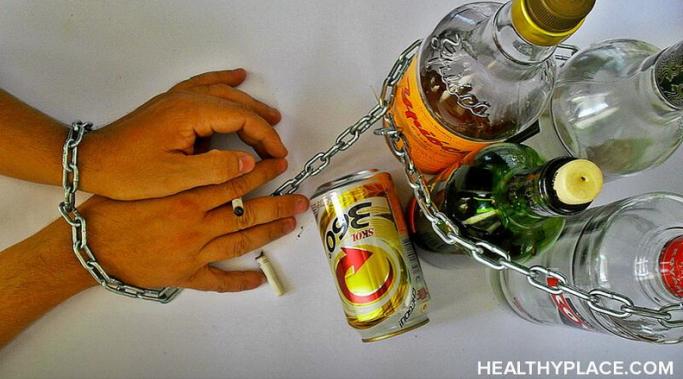Blogs
This is not to say that anger is not real or normal. It is. And often justified. But anger comes second after a primary emotion comes first. Sometimes that primary emotion isn’t even recognized or realized because it is below the surface.
Imagine a tree, with its trunk and branches tall and large above the ground, and the roots under the Earth. What do those roots do for the tree? They feed it, right? So imagine the trunk and branches are the anger on your outside, the part that people see. But below the surface is the root of the anger, fueling it. If a student was walking down the hall at school and someone tripped him, he might jump up in anger ready to fight, angry. But right before that, he might have felt embarrassment. If a teenager is late for curfew and her parents have been pacing the house, when she walks in late they might argue and be mad and punish her. But right before that, they were worried. There can be any number of emotions below that surface that trigger anger, and depression is one of them.
Dear Addiction,
What can I say about you? I love you or I wouldn't be an addict--if I didn't love you I wouldn't turn to you to cope. Yet I hate you, because you're trying and sometimes succeeding at taking over my life. You take my money, you cost me opportunities to do something else instead of spend time with you, you take my mental and physical health, and you cause me to do some crazy things--even for a person with borderline personality disorder (BPD).
Remember the time we made a drunken pass at a drag queen in a New York City transvestite bar? Or the time we stripped down and said we were going to paint our bodies and run around the neighborhood whooping like a Native American warrior? Yeah, funny, but embarrassing. You gave me what I thought was a good time, when all the time I was running from the infamous crash. In many ways I'm still running while you call to me like a lover.
The addiction culture, the addiction lifestyle, can make it very difficult for an addict to get clean or stay drug-free. As they say on the street: “it’s not the drug that will kill you – it’s the addiction lifestyle.” One of the main causes of relapse has to do with the old way of living.
The truth. What is the truth when you live in an abuser's fantasy world? How do you tell the truth to an abusive spouse who does everything they can to deny it?
The nature of control is to deny the possibility of options. When you're trying to control a person, the name of the game is to deny them the idea that there is an alternate plan of action.
I remember, before trying medication, I was terrified of it. I had the same misconceptions that many people do:
Medication is for weak people
Antidepressants are just “happy drugs” designed for people who can’t handle life
Medication will ruin your brain
Doctors give out antidepressants like candy whether you need them or not
As it turns out, none of these things are true, but they sure seemed true at the time.
So I get fear of antidepressants and other medication. Psych medication is scary stuff.
But sometimes you have to face that fear in order to get better.
For forty hours a week, I get the opportunity to work with one of the most stigmatized populations that exist in North America: men who have recently been granted parole who also are fighting life-threatening addictions. These gentlemen have a double-whammy when it comes to stigma. Not only are they stigmatized due to their criminal records, they are stigmatized due to their addiction. And many on top of that, are also stigmatized for their mental health issues.
I have touched on the topic of taking psychiatric medication forever in a previous post but it deserves more attention. It's a complex topic and something we all think about when diagnosed with a mental illness.
I can't complain. Really, our family usually lives in a place of gratitude these days. Ben is doing well. He actually has a job, after eight hospitalizations and ten years unemployed, and has celebrated his one-year anniversary there. He cares about school now, and made Dean's List once again at college. (Got a grade of 98 on his Final Essay on how his stasis was changed by reading Macbeth. Wow.)
Yes, we can't complain. This is miraculous, compared to where Ben could have been. Compared to where he would be, without treatment.
When asked how Ben is doing, I usually respond, "Today is a good day." I look to the sky to see if the other shoe is falling, but these days we are okay most of the time, certain that Ben is taking his meds and therefore inching forward with his life. We are grateful and relieved.
But - every so often - grief sets in, for what we have lost. For what Ben has lost. For what could have been, if schizophrenia had not become our reality.
Victims of abuse sometimes say and do things to cause abuse. The abuse isn't our fault -- abuse is always the abuser's fault. But since that's the world we victims live in, sometimes we say and do things to cause the abuse, to purposefully cause our abuser to abuse. And yes, victims of abuse often feel they have this sort of control over the abuser. We come by that feeling honestly. After all, we've spent much time studying our abuser's every move and manner of speech, and we can practically predict when abuse will happen. Victims say and do things to cause abuse because we're going to be abused sooner or later, but timing the honeymoon period to specific events just makes life easier.
For some reason people like to come on here and tell me (and sometimes others) that I’m not bipolar. They feel, for whatever reason, that my writing is not that of a person with bipolar and somehow it indicates that I’m not bipolar. I’m not expressing the right emotions. I’m not writing whatever it is that a “real” bipolar person would be writing.
And this happens in real life too. People somehow feel qualified to determine a person’s mental status simply by the way a person with bipolar acts in front of them.
Well, for the record, I would like to say from me, and all the other mentally ill people in the world: bite me (or, you know, us).




![MP900255362[1]](/sites/default/files/styles/blog_listing/public/uploads/2012/06/MP9002553621.jpg?itok=ccR4teIZ)





I believe she will only be able to rid herself of her demons, and hopefully her BPD as well, when she's ready to confront the abuse of her father. If she can put the blame where it belongs, she may stop projecting that victim/perpetrator cycle on the present men in her life. These demons are a metaphor for the purgatory she has created for herself. That reality has consequences in the real world, but it need not be real in the tangible sense. Exorcising her demons will require the expenditure of real physical energy and probably the destruction of aspects of her personality. If this ever happens, and it's possible but not probable, then these demons will evaporate. They are only as real as one's personality is real. In short, reality is not the question, it's what you make of the things you feel to be real.